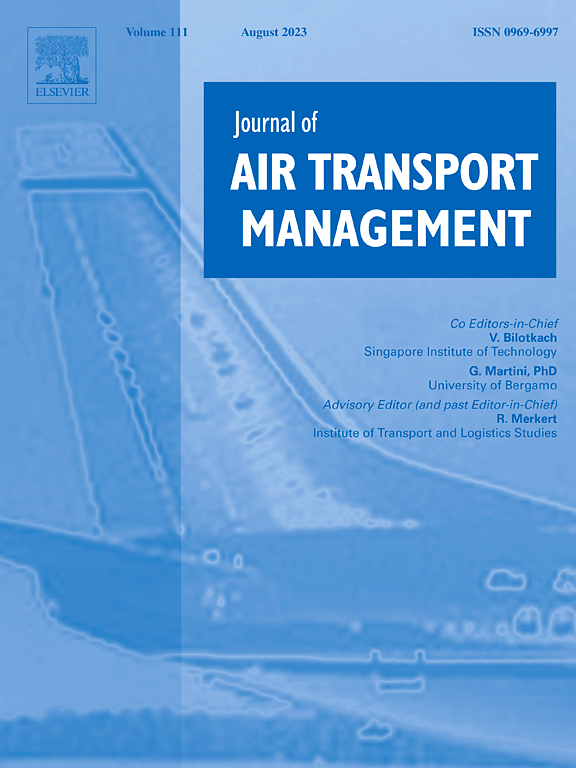Rapid and on-time baggage transportation plays a crucial role in ensuring customer satisfaction and is an important source of greenhouse gas (GHG) emissions in the aviation sector. Modular Vehicle (MV) is an emerging transportation technology that allows vehicles to adjust their capacity flexibly by assembling or disassembling identical detachable units. This innovative technology offers a new perspective to decarbonize the aviation sector, as it holds promise for reducing GHG emissions in flight baggage transportation. To investigate this possibility, this study proposes an MV operation paradigm and a corresponding “greenest” MV scheduling problem that aims to minimize MV-relevant GHG emissions while transporting baggage from the terminal to the aircraft without delay. To solve the problem efficiently, a fast construction-merging heuristic is proposed based on the theoretical properties of the problem. A series of case studies at the Tampa International Airport were conducted to evaluate the performance of the proposed MV operation and the construction-merging heuristic. The results indicate that the proposed MV operation effectively reduces GHG emissions, and the heuristic solves near-optimal solutions to the investigated problem much faster than Gurobi, a state-of-the-art commercial solver for integer programs, without much loss of the optimality of the solutions. Results from this study provide important managerial and operational insights into decarbonizing baggage transportation for airport operators.


